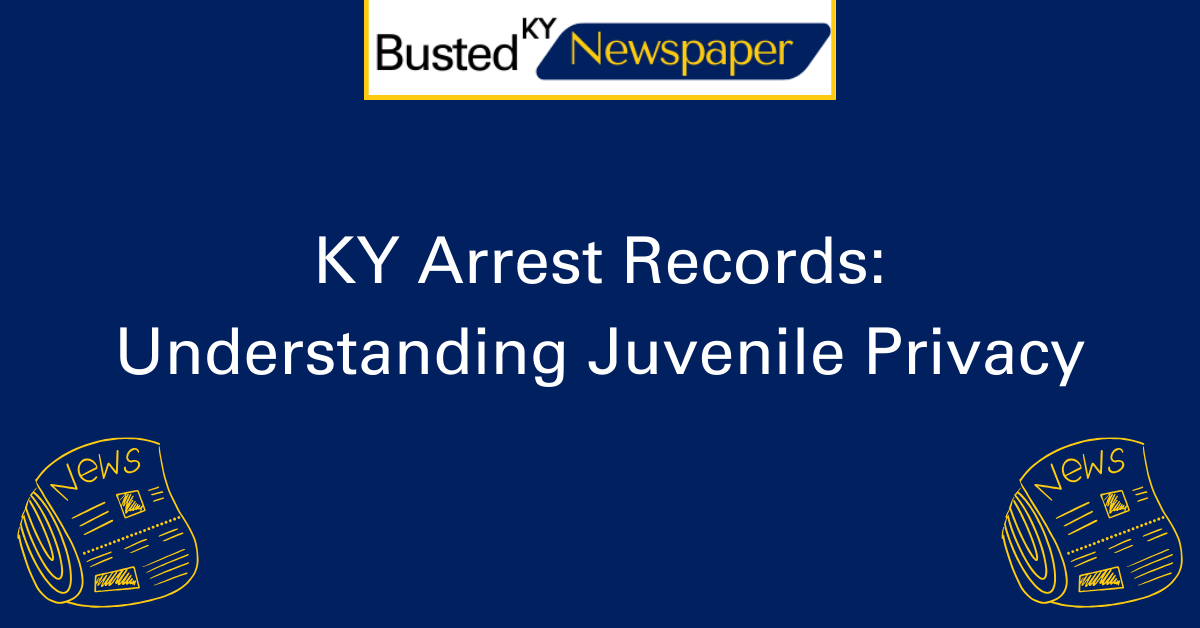KY Arrest Records: Understanding Juvenile Privacy
Understanding Juvenile Privacy is essential when it comes to KY Arrest Records. In this Comprehensive Guide, we will delve into the intricacies of juvenile privacy laws and how they apply to arrest records in the state of Kentucky.
When it comes to protecting the privacy of juveniles who have been involved in the criminal justice system, the state of Kentucky has specific laws and regulations in place. These laws aim to balance the need for transparency and accountability with the recognition that juveniles deserve a chance to grow and learn from their mistakes without the lifelong stigma of an arrest record.
Juvenile Privacy Laws in Kentucky
When it comes to protecting the privacy of juveniles who have been involved in the criminal justice system, the state of Kentucky has implemented specific laws and regulations. These laws aim to strike a balance between the need for transparency and accountability, while also recognizing that juveniles deserve an opportunity to grow and learn from their mistakes without the burden of a lifelong arrest record.
The Importance of Juvenile Privacy
Recognizing the vulnerabilities and developmental differences of juveniles, Kentucky has taken significant steps to ensure their privacy is safeguarded. By protecting their identities and limiting access to their arrest records, the state aims to promote rehabilitation and prevent long-term negative consequences that can hinder a young person’s prospects.
Transparency and Accountability
While juvenile privacy is crucial, it is equally important to maintain transparency and accountability within the criminal justice system. Kentucky’s laws strike a delicate balance by allowing certain parties, such as law enforcement agencies, courts, and designated individuals, to access juvenile arrest records under specific circumstances. This ensures that those responsible for overseeing the well-being of juveniles can fulfill their duties effectively.
The Stigma of an Arrest Record
One of the main reasons behind the implementation of strict juvenile privacy laws in Kentucky is to prevent the lifelong stigma associated with an arrest record. A youthful mistake should not define a person’s future or limit their opportunities for growth and success. By protecting the privacy of juvenile arrest records, Kentucky offers a chance for rehabilitation and reintegration into society without the burden of a permanent criminal record.
Balancing Transparency and Privacy
Kentucky’s approach to juvenile privacy laws emphasizes the delicate balance between transparency and privacy. By allowing access to arrest records under specific circumstances, the state ensures that the necessary information is available to those who need it, while still safeguarding the privacy of juvenile offenders. This approach fosters trust and accountability within the criminal justice system while protecting the rights and prospects of young individuals.
Supporting Rehabilitation and Growth
Kentucky’s commitment to protecting juvenile privacy in the context of arrest records is rooted in the belief that rehabilitation and growth are essential for young individuals. By offering a chance for redemption and learning from their mistakes, the state aims to support the development of responsible and productive citizens. These privacy laws provide the necessary framework for juveniles to rebuild their lives and contribute positively to society.
FAQ’s
What are juvenile privacy laws?
Juvenile privacy laws are regulations that aim to protect the privacy of individuals who are under the age of 18 and have been involved in the criminal justice system.
In Kentucky, juvenile privacy laws dictate that arrest records of individuals who were juveniles at the time of the offense are confidential and cannot be disclosed to the public.
Who can access juvenile arrest records in Kentucky?
Only certain authorized individuals, such as law enforcement agencies, juvenile justice personnel, and specific court personnel, can access juvenile arrest records in Kentucky.
In Kentucky, most juvenile arrest records are automatically sealed or expunged once a person turns 18. This means that the records are no longer accessible to the public.
While sealed or expunged juvenile arrest records are not accessible to the public, certain entities, such as law enforcement agencies and some employers, may still have access to these records. Therefore, individuals need to be aware of the potential impact these records may have on their future.







